|
Edward Brady (James McArdle) is a novelist, on the brink of success with his gay-themed, TikTok-boosted young-adult novel Aeons. There’s a US book tour in the offing. He is also a carer for his eighty-one-year-old mother Alma (Fionnula Flanagan), who is deprived of speech due to a stroke and communicating via the voice function on her iPad. Her home help Raf (Gaetan Garcia) is Edward’s ex. Then two of Edward’s friends leave their mothers – Jean (Dearbhla Molloy) and Maude (Stella McCusker) – with him for three nights so that they can go abroad for Maspalomas Pride. Edward won’t mind, will he, surely not? Then Edward’s therapist Dermot (Rory O’Neill, aka drag performer Panti Bliss) does the same to him with his own mother Rosie (Paddy Glynn)...
Four Mothers is the second feature by the Irish filmmaking brothers Darren and Colin Thornton: both write, Darren directs and here Colin is also associate producer and second unit director. A comedy with considerable charm but with some definite darker edges to it, Four Mothers is undoubtedly a crowd-pleaser, winner of the audience award at the 2024 London Film Festival. It was “inspired”, as the end credits put it, by the 2008 Italian film Mid-August Lunch (Pranzo di Ferragosto) though very loosely indeed. There are far more differences between the two other than the change of setting from sunny Rome to overcast suburban Dublin.
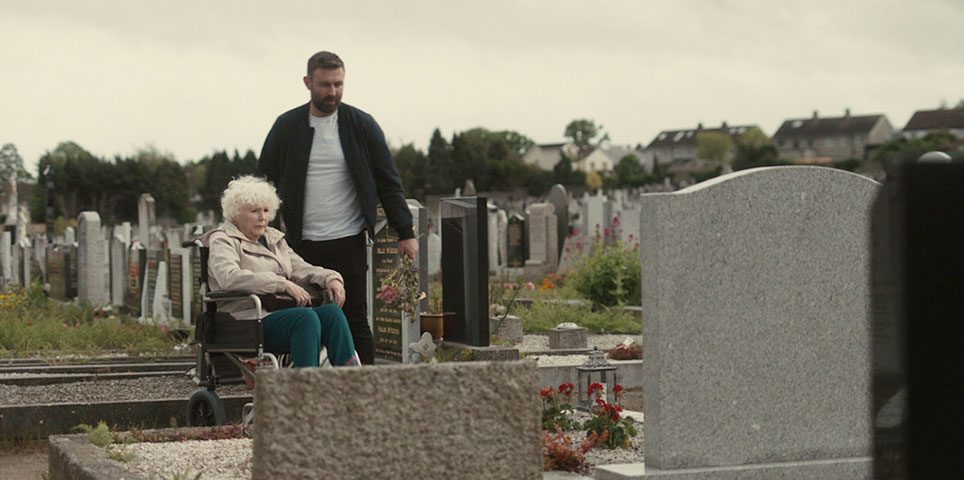
Before this film, the Thorntons had made two short films, which are included as extras on this release, and of which more below. Their first feature, from 2016, was A Date for Mad Mary, featuring a striking performance from Seána Kerslake in the title role, won two Irish Film and Television Awards. The empathy the Thorntons had for their scrappy, barely functional but just-about-holding-it-together female lead (as they had for their lead in the short Two Hearts, see below), is in place for the four elderly women in Four Mothers but here the central role is a gay man. On the brink of success as a writer, he is also only just holding himself together. There are definite subtexts at play here. As he is the gay child without a family or children of his own, he is the one expected to look after his parents, his late father and his still-living mother, while his straight brother has provided grandchildren over in London. In one key scene, the four mothers, sitting with Raf in a stopped coach while Edward takes a phone call, tell the stories of their sons’ coming out, and Maude is honest enough to say that she found it difficult and still does. Homophobia isn’t far below the surface. Edward’s publicist Stacy (Leonora Lonsdale, a filmmaker here taking on an acting role) mentions that Aeons is being published in the US at the time of bannings of LGBT books, particularly young-adult ones...and this was before Trump was re-elected. Edward is called an “obliger” by his own therapist, before said therapist unloads his own mother on him, but he has to find his own path and his own reconciliation with those around him. But there’s no doubt, if anyone had anyone, that being a sole carer is very wearing on him.
The acting is first-rate. James McArdle (actually a Scot rather than an Irishman) holds the film together, but this is a rare film with not just one but four strong roles for women of a certain age. Fionnula Flanagan has no spoken dialogue but conveys a lot with her facial expressions. Actually, make that five, as Niamh Cusack enlivens her scenes in its latter stages as a medium the four women and Edward make a round trip to Galway to see, in the hope of coming into contact with their husbands who have passed away.
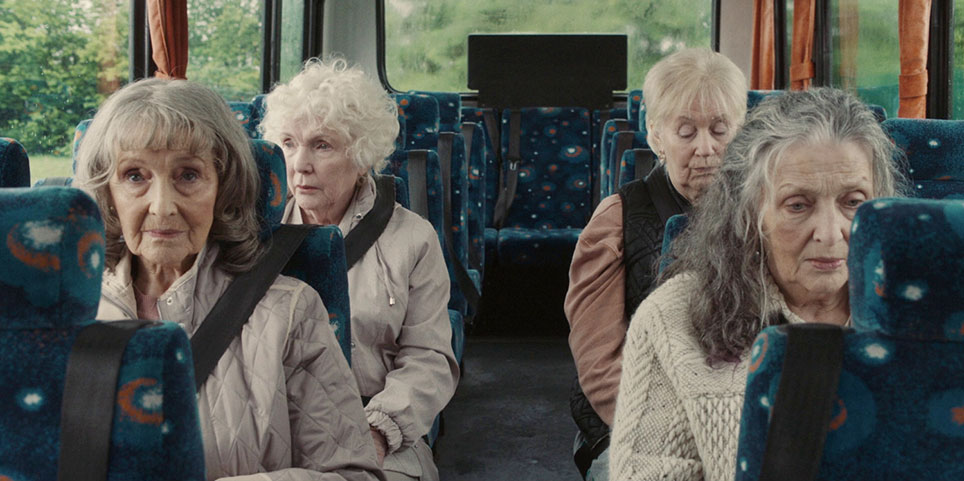
Four Mothers is not a flashy film, with Darren Thornton’s visual style tending to the self-effacing. But it’s warm, funny and poignant with more depth than you might think at first and well worth spending an hour and a half with.
Four Mothers is released by the BFI on Blu-ray, in a disc encoded for Region B only. The film has a 15 certificate, as does the short film Frankie. Two Hearts does not appear on the BBFC website as I write this.
Digitally captured, Four Mothers is transferred in its intended ratio of 2.00:1. As this film has existed in the digital realm from shooting to release in DCP to cinemas and this Blu-ray, I have no doubt that this looks as it should and if you saw the film in a cinema (I didn’t) you’ll see the same here, different screen sizes notwithstanding. Colours seem true and blacks spot on, reflecting good work as DP by Tom Comerford.
The soundtrack is available in both DTS-HD MA 5.1 and LPCM 2.0, which plays in surround. There’s next to nothing to choose between these options, and it’s not even the case that the LPCM is mixed a little louder, which is often the case with other discs. There’s not a lot of surround use other than music, and the subwoofer pretty much gets the day off. There is also an audio-descriptive track in Dolby Digital 2.0. Subtitles for the hard of hearing are optionally available on the main feature. Frankie has fixed subtitles, white on a black background.
Commentary by Colin and Darren Thornton
This track was newly recorded for this release. Given that the two men are brothers, you’d expect some rapport, and we get it, though as director as well as co-writer, Darren tends to dominate the proceedings. Colin (who is also second-unit director and associate producer) does contribute however, and points out his cameo in the phone footage in the closing credits.
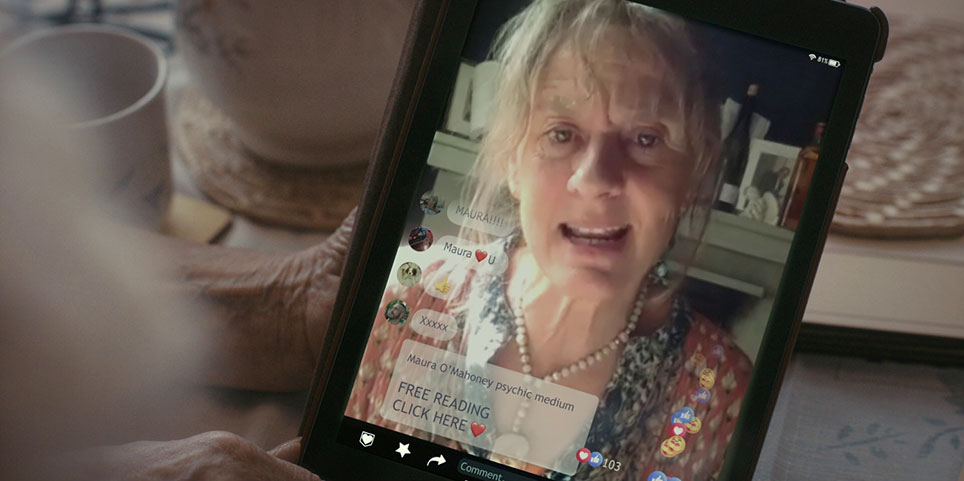
Darren says that his experience with two feature films so far is that the beginnings tend to be reworked more often than the rest of the films. A problem arose when James McArdle caught Covid and the production had to work around him for about a week, given that he was scripted to be in every scene. This meant the coach scene had to be revised. They speak about working with the four older actresses. Fionnula Flanagan found it difficult to have no lines, so everything was dependent on her facial expressions, Stella McCusker wanted more lines and by contrast Paddy Glynn wanted fewer. Filmmakers listening will pick up a fair amount of detail about the making of low-budget films such as this.
Frankie (12:00)
Darren Thornton’s first film as director dates from 2007. He wrote the script solo, but Colin has a thank you in the end credits. Frankie (Ryan Andrews) begins his voiceover by telling us, “I’m fifteen and soon, very soon, I’m going to be a daddy.” He’s actually looking forward to it, even practising with a plastic baby doll which cries and which he pushes around in a pram. Yet it’s soon clear that the likely future is far from rosy, despite his aspiration to be the best dad ever. The mother’s father beat him when he found out she (about the same age as him) was pregnant. Frankie’s older sister has her own child. Frankie’s father left after he was born and his mother has had a further daughter with a different man. Frankie has appeared in court more than once. The film does ask questions as to what makes a father, but given that Frankie is not best placed to find out, it ends on a melancholy note for all the often sweary humour in the script.
Frankie is presented in a ratio of 1.78:1 and looks like it was transferred from a video source. It may have been shot that way, although the end credits say that it has a Dolby soundtrack, rendered as LPCM 2.0. As mentioned above, there are fixed electronic subtitles, white on a black background.
Two Hearts (17:50)
From 2011, this was again directed by Darren Thornton but written solo by Colin. Leanne (Roxanna Nic Liam) is a single mother of a three-year-old daughter. She is also, as we see in one scene, a drug addict. Then a man from her past is released from prison. Much less humorous than Frankie, if in its way just as bleak, Two Hearts looks forward more to the Thorntons’ first feature A Date for Mad Mary, with its sympathetic focus on a young woman, and it’s quietly affecting.
Two Hearts is presented in a ratio of 2.35:1 and also has a LPCM 2.0 soundtrack, which plays in stereo. No subtitles are available.
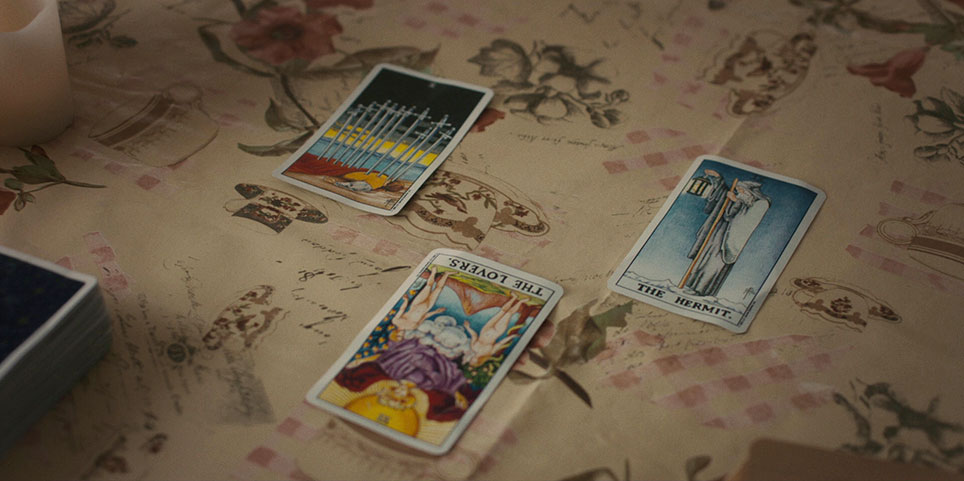
The Absurdity in These Moments: An Interview with James McArdle (25:25)
Recorded for this release at the BFI Southbank, James McArdle talks about his career and the making of Four Mothers. He is actually Scottish (Glaswegian) rather than Irish, and an early interest in acting led him to the Paisley Youth Theatre. He was leading shows by the time he was twenty-three. He began in the theatre and still seeks to go back to it, despite his work in film and television. On stage, he says, you are the editor of your own performance, where on the big or small screen that’s to a large extent done by others. By the time he was in his early twenties, he was playing leading roles in shows. A lifelong Spielberg fan – he used to act out Jaws as a child – he talks about meeting the man himself. Not mentioned, but it’s a coincidence that Mary’s surname in A Date for Mad Mary is McArdle, as James McArdle hadn’t met the Thorntons then.
Behind the scenes (4:48)
This is presumably from the film’s EPK as it follows the usual formula for such pieces: extracts from the film, some shots of the film in production and interview soundbites with the director and the principal cast, not just James McArdle but all four of the mothers of the title.
Trailer (1:44)
This does a good job of letting you know what you’re in for, with the addition of critical quotes and lists of festival selections to bolster things.
Booklet
The BFI’s booklet, available with the first pressing of this release, runs to twenty-four pages plus covers. Following a spoiler warning, it begins with “Four Mothers: Gay Sons, Grief and Moving On” by Simon McCallum. While acknowledging that it’s a mothers/sons (plural) story, McCallum does put an emphasis on Four Mothers as a story of a gay man and one dealing with concerns which are universal but particularly felt by gay men: “delayed adolescence; people-pleasing and perfectionism; coming out later in life; parental approval and rejection; different expectations compared to straight siblings; ‘chosen family’ vs blood relatives; and so on”. He also looks at the reactions of the four mothers towards their gay sons. Dermot, who had been closeted to the point of marrying a woman and fathering children, is now in his fifties catching up on what he missed at a much younger age. Edward, for other reasons, not least his caring responsibilities, also has his life on hold.
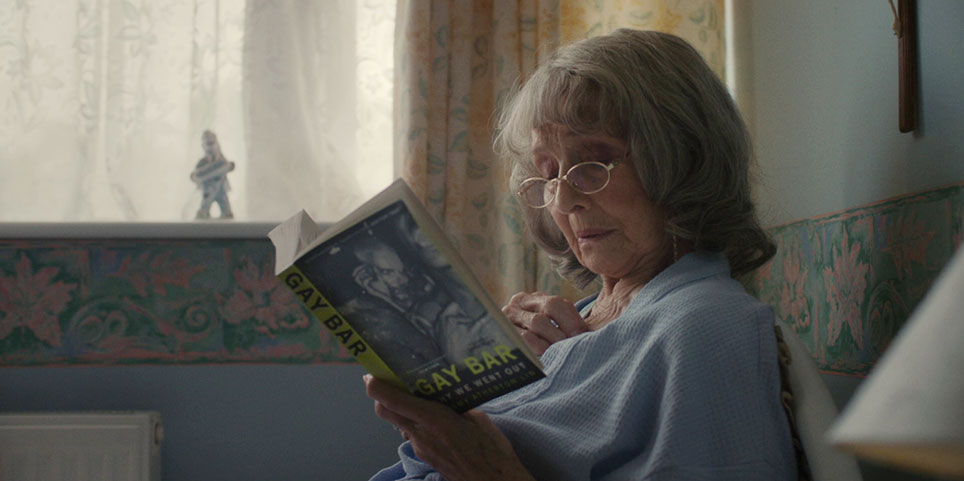
Darren Thornton is next, with “The Painful Absurdity of Life and Death”. This is an autobiographical piece beginning in 2016 while he was promoting A Date with Mad Mary, then about to be released in Irish cinemas, and hearing that his mother was diagnosed with motor neurone disease. Darren and Colin both became her carers, along with their father and aunt. She died in 2017. Darren and Colin felt that the experience had loomed so large for them that they had to write about it and being sent a DVD of Mid-August Lunch gave them a framework. Alma’s reliance on the voice app on her iPad was autobiographical. The film is dedicated “for Trish”, their mother.
The booklet also reprints Nick Davis’s review of Four Mothers from the April 2025 Sight & Sound, a cast and crew listing (which, at least in the PDF copy received for review, calls Dearbhla Molloy’s character Maura instead of Jean), and notes on and credits for the special features, including pieces on the two short films by Rachel Pronger.
Relatively modest, but very well done, Four Mothers is a winning comedy, which along with the even better A Date for Mad Mary, shows the Thornton brothers as talents to watch. It’s well presented on the BFI’s Blu-ray.
|